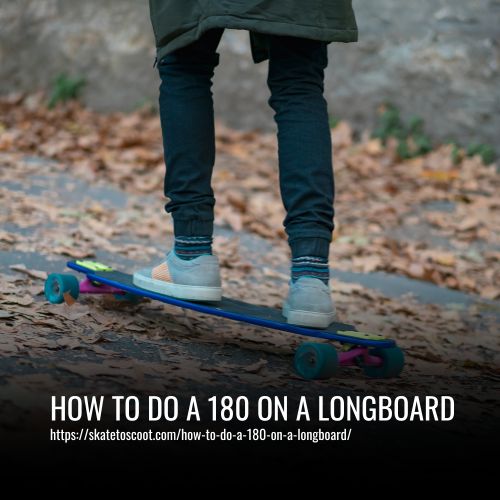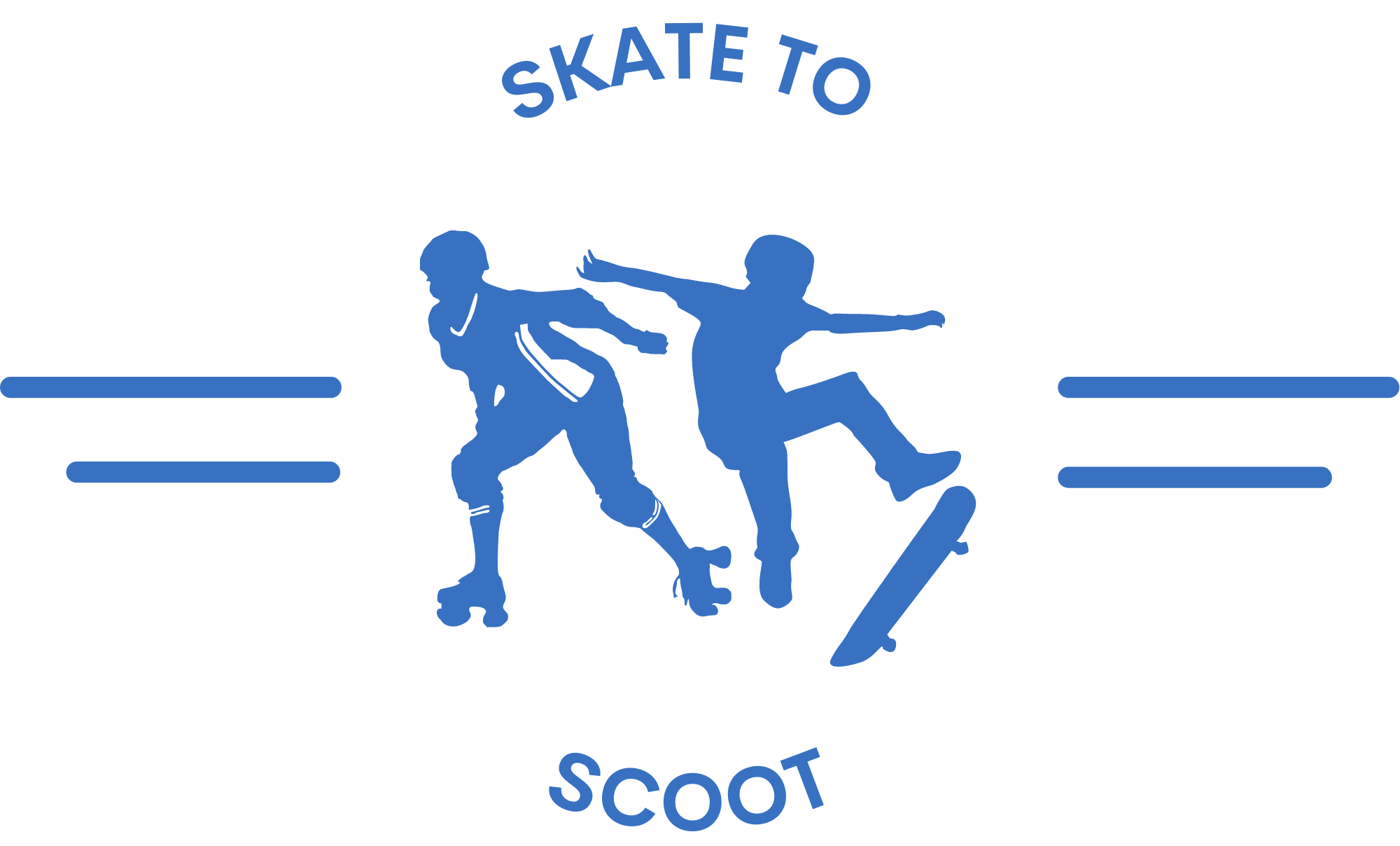How To Do A 180 On A Longboard
This post contains affiliate links. As an Amazon Associate, we earn from qualifying purchases.
Have you ever watched someone effortlessly execute a 180-degree turn on a longboard and wished you could do the same? Well, you’re in luck! Mastering the art of doing a 180 on a longboard is not as daunting as it may seem. With the right technique and practice, you’ll be spinning around like a pro in no time.
Longboarding is all about the thrill of speed and the freedom of movement, and being able to execute a smooth 180-degree turn adds a whole new level of excitement to your rides. Whether you’re a beginner looking to expand your skills or an experienced rider wanting to add some flair to your tricks, learning how to do a 180 on a longboard is an essential skill to have in your repertoire.
In this article, I’ll guide you through the step-by-step process of performing a 180-degree turn on a longboard, breaking down the technique, and providing helpful tips along the way. So grab your board, lace up your shoes, and get ready to take your longboarding skills to the next level with this exhilarating maneuver.

How to Backside 180 Like a Pro: Mastering the Trick
Learning how to backside 180 on a longboard requires patience and practice. To execute the trick successfully, you must focus on your technique and gradually increase the rotation of your body and board. Here are some helpful tips for performing a backside 180 like a pro.
1. Get Your Feet in the Right Position on the Board:
- Start with a regular stance, similar to the ollie.
- Place your front foot near the middle of the board for balance.
- Choose whether to have your front foot near or far from the back foot, depending on your comfort level.
2. Make a Move/Momentum with Enough Speed:
- Warm up and ride the skateboard for a few minutes to get used to the board.
- Build some momentum before attempting the backside 180.
- Find a speed that is suitable for you, not too fast or slow.
3. Lower Your Body to Prepare for a Jump:
- Bend your knees and keep your arms down near them for balance.
- Use your shoulders to twist and turn your body during the trick.
- You don’t need to pop the board up as high as in other tricks.
4. Use Your Back Foot to Pop the Board Up:
- Bend your knees and lower your body to prepare for a jump.
- After popping up the deck, gently turn your hip and shoulders around.
- Use your back foot to make the rotation, keeping control of the board.
5. Slide Your Front Foot Alongside the Board when You Start Jumping:
- Slide your front foot alongside the board after lifting it in the air.
- This helps you land with your front foot and maintain control.
- Use the side of your shoe, not the whole sole, when sliding your foot.
6. Try to Land with Your Slide Foot:
- Focus on landing with your sliding foot to achieve a full 180-degree rotation.
- Lighten your back foot to avoid falling backward when landing.
7. Straighten up Your Body Gradually after Bending down Your Knees:
- Keep your body low by bending your knees to reduce the shock of landing.
- Gradually straighten up your body once you regain balance.
8. Practice More and More:
- Practice is key to mastering the backside 180.
- Start by mastering the ollie before attempting this trick.
- Be patient and keep practicing until you can perform the trick with ease.
Remember, a full 180-degree rotation is not necessary to consider it a successful backside 180. Focus on mastering the technique and movement, and the exact number of degrees becomes less important. With time and practice, you’ll be able to perform the backside 180 like a pro.
What Is a Backside 180?
A backside 180 is a fundamental trick in skateboarding where the skater performs an ollie and rotates their body and board 180 degrees. It is similar to a frontside 180, but the difference is that the skater turns their back around while spinning the board. This is why it is called a “backside” 180.
However, executing a backside 180 correctly can be challenging. Many skaters, including myself, struggle to achieve a full 180-degree rotation. Often, the rotation falls short at around 120 to 160 degrees.
To perform a backside 180 comfortably, it is crucial to first master the ollie. The ollie is a foundational trick that serves as a building block for learning other tricks. Once you are comfortable with the ollie, you can work on improving your rotation for the backside 180.
Safety Considerations
When attempting any trick or maneuver on a longboard, safety should always be the top priority. Before attempting a 180 on a longboard, it is crucial to ensure that you have the necessary safety gear, including a helmet, knee pads, elbow pads, and wrist guards. These will provide protection in case of falls or collisions.
Additionally, it is important to choose an appropriate location to practice your trick, such as an open and flat area with minimal traffic. It is also a good idea to warm up and stretch before attempting any advanced trick to prevent injuries. Finally, always start small and progress gradually.
Protective Gear
When it comes to longboarding, safety should always be a top priority. Before you hit the pavement, it’s essential to have the proper protective gear. The minimum requirements for a longboarder include a helmet and slide gloves. A helmet protects your head in case of falls or collisions, while slide gloves offer hand and wrist protection during slides and maneuvers.
Aside from protective gear, having the right wheels on your longboard is crucial, especially if you’re interested in sliding and freeriding. Wheels suitable for sliding should have a durometer (hardness) of around 78A to provide enough grip without compromising the ability to slide. Look for wheels with rounded edges and a slide-friendly formula to improve control and speed.
Board Setup and Maintenance
To properly set up and maintain your longboard, there are a few key steps to follow. First and foremost, it’s essential to choose the right longboard deck based on your weight and desired level of footwork. A flexible deck is highly recommended for beginners, as it provides a more forgiving feel and helps with stability. For more advanced riders who want to focus on intricate footwork tricks, a stiffer deck may be preferable for better control and responsiveness.
Once you have your longboard deck, it’s important to regularly check for any cracks or damages to ensure your safety while riding. Inspect the deck, trucks, and wheels for any signs of wear and tear. Tighten any loose hardware and replace any damaged or worn-out parts as needed. Regularly cleaning and lubricating the bearings is also crucial for optimal performance.
Choosing the Right Location
When it comes to learning and practicing the 180 on a longboard trick, choosing the right location is key. It’s important to find a suitable area that provides enough space and a smooth surface for safe and effective practice.
The ideal location for practicing the 180 should have ample room for you to gain speed and perform the trick without any hindrances. This will allow you to properly execute the maneuver and focus on your foot placement and body movements. Look for open parking lots, skateparks, or even quiet residential streets with little to no traffic.
In addition to space, the surface of the chosen location should be smooth and free from cracks or bumps. A smooth surface will enhance your ability to maintain balance and control throughout the trick. It’s important to avoid areas with rough terrain, as it can make it difficult to execute the 180 smoothly and safely.
Practicing at Slow Speeds
When learning how to do a 180 on a longboard, it is crucial to start practicing at slow speeds. This allows you to develop proper technique and control before attempting the trick at higher speeds. Riding too fast can result in the board spinning or flipping in the wrong direction, leading to potential injuries.
Practicing at slow speeds allows you to focus on your foot placement, body positioning, and weight distribution. By starting slow, you can ensure that you have a solid foundation and understanding of the mechanics involved in the trick. This will make it easier to progress to faster speeds as you become more comfortable and confident with the maneuver.
To find the right speed for practicing the 180, start by pushing off gently and gradually increasing your speed. Aim for a comfortable pace that allows you to maintain control and balance throughout the trick. It’s important to strike a balance between going too fast and lacking control, or going too slow and not having enough momentum to complete the 180.
FAQs
A 180 trick on a longboard is when the rider spins the board 180 degrees while maintaining control and balance.
One common challenge is maintaining balance and control while performing the spin. This requires practice and proper weight distribution. Additionally, the fear of falling or losing control can be a challenge to overcome, but practicing at slower speeds and gradually increasing confidence will help.
Yes, there are many variations and additional tricks you can try once you’ve mastered the 180. Some popular ones include cross-stepping, Peter Pan (jumping and spinning the board), and ghost riding (spinning the board while stepping off and back on). Exploring different footwork and board control techniques will open up a world of possibilities for your longboarding skills.
Conclusion:
Learning how to do a 180 on a longboard is not only an impressive trick, but it also opens up a whole new world of possibilities for your riding. It may seem daunting at first, but with practice and determination, you’ll be effortlessly spinning and sliding your way through the streets.
So grab your board, find an open space, and get ready to turn heads with your newfound skills. Keep pushing your limits and remember, the only way to go is up!
